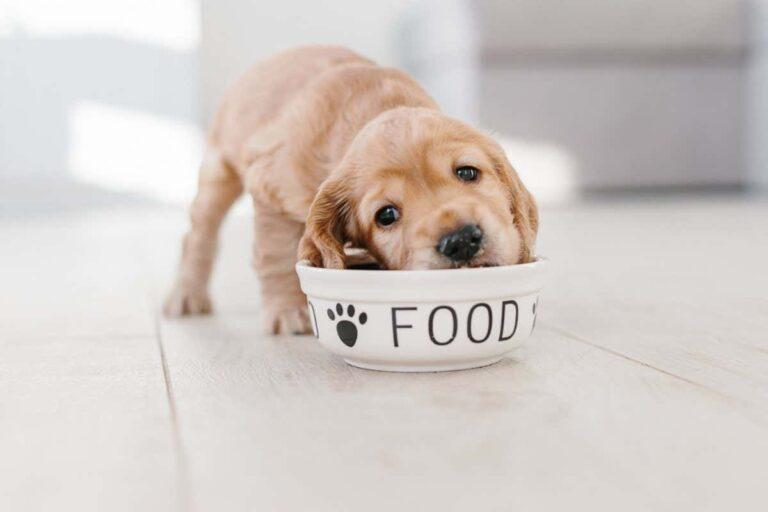Brief Summary: A recent analysis from Consumer Reports has raised concerns about the presence of heavy metals in baby food products from several well-known brands, including Gerber, Parent’s Choice (sold at Walmart), Nurture, Earth’s Best Organic, and others. These heavy metals, which include arsenic, lead, and mercury, have been linked to developmental disorders such as autism spectrum disorder (ASD) and attention deficit hyperactivity disorder (ADHD).
While baby food companies have purportedly made efforts to address the heavy metals issue, the latest baby food report from July 2023 suggests that toxic metals are still in baby food products sold in stores. The most problematic products in the baby food report were snack foods, along with products containing rice and sweet potatoes.
2023 Report Finds Mercury, Arsenic, and Lead in Baby Food
In 2018, Consumer Reports tested more than 30 popular baby food products for heavy metals. While the organization’s findings essentially kickstarted a government investigation into the heavy metals issue, Consumer Reports found in its most recent analysis that not much has changed over the last five years.
CR’s 2023 testing of 14 baby food products, included fruits and vegetables, meals and entrees, and various kids snacks like bars, puffs, and teething wafers. The analysis was designed to reexamine products that had previously shown concerning levels of heavy metals in CR’s tests five years ago. At least three samples of each product were tested.
Seven baby foods that had concerning levels of arsenic, cadmium, lead, and mercury five years ago—products that CR’s experts recommended consuming less than one serving per day—were retested. According to the results, heavy metals declined in three of these products, while the levels of certain heavy metals increased in three other products. The other baby food remained unchanged from five years ago.
Baby Foods with Heavy Metals 2023
The following baby food list is in order of most concerning, per Consumer Reports’s analysis (products at the top should be served to children less frequently than products at the bottom:
Gerber Tub (Chicken Rice Dinner) – Serving size: 1 tub
Recommendation: Consume less than .5 servings per day
Gerber Tub (Sweet Potato Turkey with Whole Grains Dinner) – Serving size: 1 tub
Recommendation: Consume less than .5 servings per day
Gerber Tub (Turkey Rice Dinner) – Serving size: 1 tub
Recommendation: Consume less than .5 servings per day
Beech-Nut Naturals Jar (Sweet Potato) – Serving size: 1 jar
Recommendation: Consume less than .5 servings per day
Earth’s Best Organic Jar (Sweet Potato, Squash & Chicken) – Serving size: 1 jar
Recommendation: Consume less than 1 servings per day
Gerber Natural for Baby Veggiepower Tub (Pea Carrot Spinach) – Serving size: 1 tub
Recommendation: Consume less than 1 servings per day
Happy Baby Organics Superfood Puffs (Purple Carrot & Blueberry) – Serving size: Roughly 50 puffs
Recommendation: Consume less than 1.5 servings per day
Happy Baby Organics Superfood Puffs (Banana & Pumpkin) – Serving size: Roughly 50 puffs
Recommendation: Consume less than 1.5 servings per day
Happy Baby Organics Superfood Puffs (Apple & Broccoli) – Serving size: Roughly 50 puffs
Recommendation: Consume less than 1.5 servings per day
Hot Kid Baby Mum-Mum Teething Wafers (Banana) – Serving size: 4 wafers
Recommendation: Consume less than 2 servings per day
Earth’s Best Organic Pouch (Spinach Lentil Brown Rice Veggie & Protein) – Serving size: 1 pouch
Recommendation: Consume less than 2 servings per day
Gerber Snacks for Baby Teethers (Strawberry Apple Spinach) – Serving size: 4 wafers
Recommendation: Consume less than 3 servings per day
Gerber Natural for Baby Jar (Pear Carrot Pea) – Serving size: 1 jar
Recommendation: Consume less than 3 servings per day
Earth’s Best Organic Sunny Days Snack Bars (Strawberry) – Serving size: 1 bar
Recommendation: Consume less than 4.5 servings per day
Which Baby Foods Are Low in Heavy Metals?
Foods with peas, green beans, butternut squash, and bananas as the top ingredients are among the best for children as they contain minimal levels of heavy metals. Beans, eggs, and tender meats in traditional or homemade baby food are also excellent sources of low-metal protein. A wider inclusion of various fruits and vegetables, rather than an excessive reliance on carrots, rice, and sweet potatoes, can effectively decrease overall exposure to heavy metals.
How Parents Can Avoid Heavy Metals in Baby Food
According to James E. Rogers, PhD, director of food safety research and testing at Consumer Reports, the latest results show that the industry still has a long way to go in addressing this important safety issue. The latest report shows that rice and sweet potatoes have consistently posed the biggest risks in terms of heavy metal intake in foods.
All of the products Consumer Reports tested that contain sweet potatoes should be limited to less than a single serving per day, according to the report. Two of the products, Beech-Nut Naturals Sweet Potato and Gerber Sweet Potato Turkey with Whole Grains Dinner, were recommended for consumption of less than a half serving per day.
Parents should also be careful about serving baby snacks, particularly teething wafers and puffs, due to the presence of ingredients that have consistently tested high for heavy metals. Many of these snacks are made with rice, with puffs being a significant source of exposure.
Serving sizes for these products may be smaller than what parents assume, which means children consume larger amounts of these foods, leading to more exposure to heavy metals. For example, CR’s daily limit for Hot Kid Baby Mum-Mum Banana Teething Wafers is less than two servings a day, but 5 percent of children consume 3.5 servings or more of this food daily. Similarly, CR’s daily limit for Happy Baby’s Organic Superfood Puffs is less than 1.5 servings, but each puff is about the size of a Cheerio, leading to potential overconsumption. Simply put, parents should avoid serving these to young kids, and babies in particular, because they consume more food relative to their body weight than adults, and thus absorb more toxic metals.
While CR’s testing found that some products showed decreases in certain heavy metals compared to testing from five years ago, this does not necessarily translate to less risk. In some cases, the levels of certain heavy metals dropped, but other heavy metals tested at higher levels, making it challenging to determine the risk.
For example, in Gerber Chicken Rice Dinner, arsenic levels dropped by 22 percent, but lead levels were detected for the first time. This led to a change in the daily limit recommendation from less than one serving per day to less than half a serving. Similarly, Happy Baby Organics Superfood Puffs, Purple Carrot & Blueberry saw a decline in cadmium levels by 34 percent and inorganic arsenic levels by 45 percent, but lead levels increased by 60 percent.
Bottom Line: The CR report highlights the need for continued efforts by the baby food industry to address the presence of heavy metals in their products. Consumers and parents should be aware of the potential risks associated with certain baby foods, particularly snack foods and those made with rice and sweet potatoes. The goal should be to ensure the safety and well-being of children by minimizing their exposure to harmful heavy metals in baby food.
Parents Can File a Baby Food Lawsuit Against the Manufacturers
Baby food lawyers from Wisner Baum represent thousands of children suffering from autism spectrum disorder (ASD) and attention-deficit/hyperactivity disorder (ADHD) after consuming baby food products containing dangerous amounts of arsenic, lead, and mercury.
Our firm will lead the first baby food trial in California state court on October 4, 2023. Filed on behalf of a young boy with autism and ADHD, the lawsuit alleges the following companies knowingly sell products tainted with heavy metals linked to autism and ADHD:
If your child developed autism or ADHD after eating baby foods from any of the brands above, you may have a case against the manufacturer. To learn more about your legal rights, give us a call at (855) 948-5098 or fill out our case evaluation form. Our baby food lawyers represent families on a contingency fee basis, which means it costs you nothing upfront to join the lawsuit and potentially seek compensation.
This content was originally published here.




















